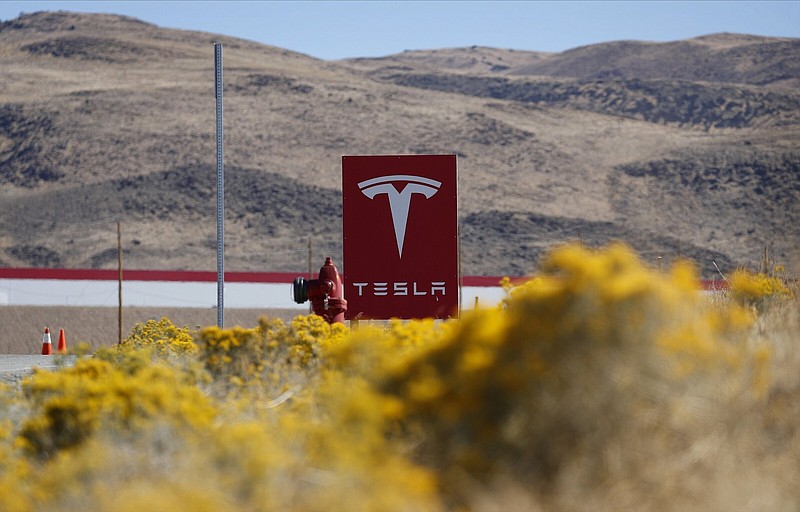SPARKS, Nev. -- Tesla said it intends to invest $3.6 billion to expand manufacturing capabilities in Nevada and is confident that growing software-related profits will keep margins higher for the company than any other automaker.
The company confirmed it plans to produce high volumes of semi-trucks and to make enough cell batteries for 2 million light-duty vehicles annually in Nevada.
Nevada Gov. Joe Lombardo posted a photo on Twitter of him and CEO Elon Musk late Tuesday after the newly elected Republican announced in his first State of the State address Monday night that Tesla had committed to a "brand-new" manufacturing facility for electric trucks in northern Nevada.
The project actually will expand an existing operation at the Truckee Reno Industrial Center, about 20 miles east of Reno and Sparks, along Interstate 80. But the plan takes the company a step closer to accomplishing previously announced plans to ramp up Tesla Semi production to make 50,000 trucks in North America in 2024.
The White House issued a statement trumpeting the plans Tuesday as Musk wrapped up three hours of testimony defending himself in a class-action lawsuit in a San Francisco federal court over his operation of Twitter, one of three major corporations he owns including Tesla and SpaceX.
Musk's personal use of Twitter took center stage as proceedings continued Wednesday in the lawsuit alleging he misled Tesla shareholders in 2018 with a tweet about an aborted buyout of the company.
Mitch Landrieu, President Joe Biden's infrastructure chief, said Tuesday that Tesla's additional investment in Nevada is proof of a continued "manufacturing boom" since Biden took office two years ago. He said the expansion would create 3,000 jobs in Nevada while promoting clean energy and strengthening U.S. security.
Tesla delivered its first electric semis to a PepsiCo facility in December in Nevada, more than three years after Musk said his company would start making the trucks.
At a November 2017 event unveiling the Tesla Semi, Musk said production would begin in 2019 and the trucks would be able to follow one another autonomously in a convoy. But during Tesla's third-quarter earnings conference call in October, he said the company's "Full Self Driving" system was not quite ready to be driverless.
The truck has a range per charge of 500 miles when pulling an 82,000-pound load, Musk said.
The Austin, Texas, maker of electric vehicles and solar panels said Wednesday that it earned $3.69 billion from October through December, or an adjusted $1.19 per share. That beat estimates of $1.13 that had been reduced by analysts, according to FactSet. The company's profit was 59% more than the same period a year ago.
Revenue for the quarter was $24.32 billion, which fell short of the $24.67 billion analysts expected.
Musk said that despite price cuts of up to 20% on some vehicles announced earlier this month, demand for Tesla products is strong and sales are constrained by production.
Information for this report was contributed by Tom Krisher and Michael Liedtke of The Associated Press.
